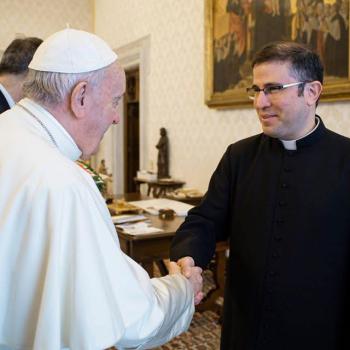Active and Metaphysical Engagement
One of the sharpest aspects of our cognitive dissonance is in how to approach the world with our time and energy. Many see Paganism having an ethical and moral imperative to become actively engaged in environmental causes, social justice, and political advocacy locally and globally. Others of a more occult bent are uncomfortable having leaders, teachers, and organizations telling members what to believe, what to do, or how to vote, and see the development of ethical and moral structures arising from their techniques and experiences.
If a teaching leads you to take action in accord with your soul's will, take action. Find others to take action with you, but do not assume that the action you take is the action everyone should take, or must take, or you fall into the traps of more institutionalized religions. These two paths of individual action and community action can be mutually supportive rather than conflicting if the intention and purpose of both can be respected, and neither tries to co-opt or convert the other.
Interfaith and Intrafaith
The remaining trend I see in the community is the dialogue between the branches of Paganism and other religious traditions. I'd like to say we've dispelled all of the stereotypes and misinformation, but we're still working on it, and have to move beyond it to what is next. The world is in crisis, in part because the Pagan voice has not been a part of the local, national, and global dialogue.
As we grow, seeds from our tree fall and sprout new trees. We need more intrafaith dialogue between our own traditions and groups and the acceptance of inevitable growth and separation. Today, many Witches do not identify as Pagan because of the religious strain of thought in reconstructionist Paganism. Many forms of Paganism want to disassociate from the mainstream, and sometimes commercialized, identity of Wicca. Many cultural traditions want to use words from their own culture, and not the word Pagan (such as some in the growing Heathen tradition), while other practitioners are fine with both words. Many cultures and traditions shared with the early Pagan movement — particularly some Hindu, Native American, and African Diasporic traditions — struggle to assert and maintain their own individual practices and identities, and not be thought of as part of the mainstream Pagan community. Everyone has a right to self-identify and even when not entwined, we have a lot in common and can work together to support growing communities and the dialogue between them.
Paganism is taking these seeming dissonances and using them as the gateway to enter the Mysteries. I'm sure there will be no shortage of conflict as we collectively grapple with these themes, but hopefully we will struggle with open minds and open hearts and enter into a state of consciousness that does not try to impose only one choice, but allows for the diverse plurality of branches to grow and flower as they will.




